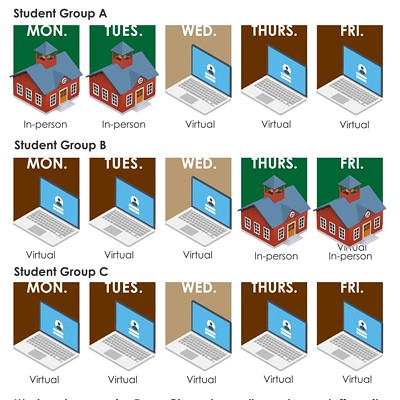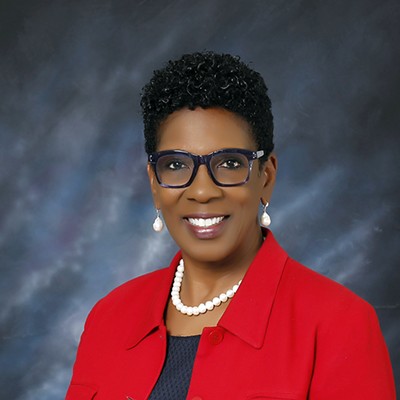LAST WEEK, the Savannah/Chatham School Board approved a five percent raise for School Superintendent Dr. Ann Levett.
Her base salary will rise to $261,000.
This is in addition to a frankly luxurious benefits/perks package, which includes:
• An annual contribution of 10 percent of her salary to a tax-sheltered annuity if she exceeds district evaluation goals.
• All health insurance costs.
• 25 vacation days a year plus sick leave.
• $1,000 a month for car expenses.
• Free smartphone and payment of her smartphone bill each month.
• Free home office equipment, including a laptop, tablet and workstation.
• Paid membership dues in professional associations and up to $8,000 a year in costs related to professional development.
Meanwhile, the median household income in the district she serves is about $39,000 a year.
In the City of Savannah, the median personal income is less than $21,000 a year.
Lest you think I’m picking on Dr. Levett, her predecessor, Dr. Thomas Lockamy, received a slightly lower, but similar, salary/benefits package.
This issue goes way beyond Dr. Levett.
If you take a deep dive into the numbers compared to other school systems, you see the real problem is much bigger.
While the average school superintendent salary across the nation is about $117,000 a year, about half of Dr. Levett’s, that’s misleading.
When you look at public school districts of 25,000 students or more – Savannah/Chatham has roughly 38,000 – the average superintendent salary jumps to about $213,000.
Here’s the thing: Superintendent Levett’s compensation package isn’t really that far out of line with similarly sized school districts.
It’s well below the salary of the state’s largest districts. The new Fulton County school superintendent, for example, just got a raise to $329,000 base salary, to run the state’s fourth-largest district.
Adjacent Gwinnett County, the state’s largest district with about 180,000 students, pays its superintendent a package worth over half a million dollars a year.
Clayton County’s district has less than 60,000 students, but the school superintendent there is paid a jaw-dropping $387,000 a year.
Probably the highest-paid superintendent in Georgia on a per-student basis runs the Atlanta Independent School District (52,000 students). That salary package is about $462,000 a year — literally almost double what Dr. Levett makes, in a district only fifty percent larger.
(The Open Georgia site at open.georgia.gov is a valuable research tool.)
So what we see locally is just an aspect of a much larger national issue: Struggling public schools with an increasingly bloated administrative structure, as teacher salaries stay criminally low, with some turning to GoFundMe to buy classroom supplies.
Locally, public school teachers are excited that they are finally getting a long overdue and well-deserved $3,000 raise from the state.
But notice their superintendent is more than keeping pace, with a five percent hike that amounts to more than triple the teachers’ raise.
The local public school headquarters at 208 Bull Street has achieved legendary notoriety for its concentration of great compensation in a comparatively few hands, while the district struggles to fill teacher positions and retain quality educators at the classroom level.
This virus infects higher education across the nation as well, with skyrocketing university tuition and fees mostly going to pay grotesquely bloated administrative staff, while professors often make what amounts to minimum wage, or less.
Meanwhile, the actual educational level that taxpayers are funding seems to either stay stagnant, or get worse year after year.
I don’t know a single person who would seriously make the case that education outcomes are keeping pace with the increase in administrative compensation, at the K-12 or the college level.
The Savannah/Chatham public school district ranks about 134th out of 182 districts in Georgia in educational achievement, according to one study.
Georgia itself is in the cellar, ranking about 38th in the nation in quality of public education.
Six local schools are designated “turnaround eligible,” i.e. state takeover, at the end of the 2018 school year. That’s actually good news – it was nine the year before.
If it sounds like I’m picking on the public sector, let’s keep in mind that the modern CEO model in public and higher education is based directly on the private sector.
Constantly urged to “run things more like a business,” the public sector has unfortunately learned all the wrong lessons from the private sector.
It is enacting the worst aspects of the capitalist system (reinforcing wealth disparity, a culture of cronyism and ossification) instead of the best (rewarding innovation, a culture of aspiration and creativity).
Here’s the number we should all really be worried about:
Voter turnout in the last local school board election was 17 percent.
It’s not really a mystery why board members and school administrators often feel more in tune with the needs of fellow board members and school administrators than with the needs of the general public.
There is little accountability because there is so little public involvement.
It’s baffling. The school board is the largest taxing entity in the area, and arguably the one with the least public oversight.
They are in charge of our most important resource: Our children.
Yet we routinely hold individual police officers and teachers and journalists — just three examples of extremely low-paid workers who receive intense public scrutiny — to much higher standards than we often hold their administrators and bosses.
Until the public becomes more invested and involved at the voting booth and beyond, these are the kinds of things that happen.





























